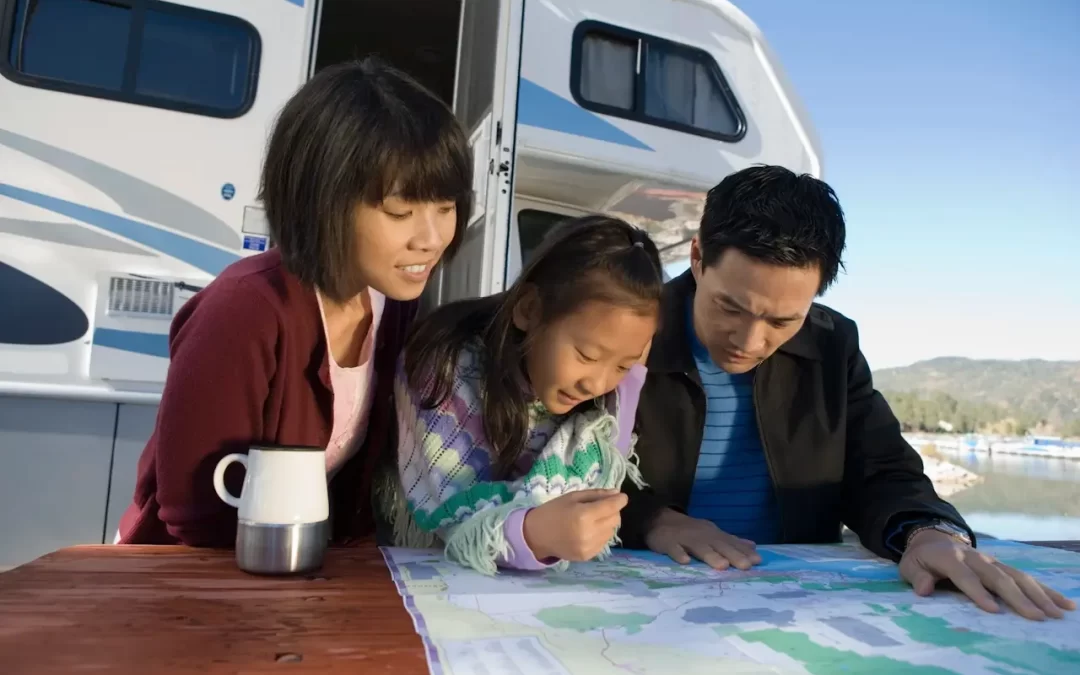Life on the road in an RV offers a unique opportunity to explore and adventure in a way many people never experience. However, with that lifestyle comes a responsibility to care for the planet we call home. Here are six tips for eco-conscious RV living to help lessen your footprint on the earth.
Eco-Conscious RV Living
1. Reduce Water Usage
One way to be eco-conscious in your RV is to reduce water usage. You can consume less water by taking shorter showers, turning off the tap when brushing your teeth, being aware of water usage while washing dishes, and fixing leaks immediately. Install low-flow showerheads and faucets to decrease water usage further.
2. Use Natural Cleaners
Many RV owners use harsh cleaning chemicals, which can harm the environment. Switch to natural cleaning projects, or make your own from ingredients like vinegar and baking soda to reduce environmental impact and eliminate the risk of chemicals damaging your RV’s plumbing and finishes.
3. Install Solar Panels for Eco-Conscious RV Living
Installing solar panels on your RV provides a sustainable source of energy that reduces your reliance on fossil fuels. You’ll help the environment, be more self-sufficient, and save money on energy bills while RVing.
4. Practice Leave No Trace Principles
When camping in nature, it’s important to practice “Leave No Trace” principles, which include packing out all trash, using designated campsites and fire rings, and avoiding damaging plants and wildlife. Following these principles will preserve natural habitats for future generations.
5. Eco-Conscious RV Living: Conserve Energy
Like reducing water usage, being mindful of your energy consumption makes a big difference. Turn off lights and electronics when not in use, use energy-efficient appliances, and switch to LED lights to decrease energy usage. If you have a microwave or coffee maker in your RV, unplug it when it’s not in use to prevent phantom energy drain.
6. Support Local Sustainable Tourism
When RVing, buy locally grown and produced goods and participate in eco-friendly activities, such as nature hikes and guided tours. Look for ways to support people in the communities you visit.
By implementing these tips, you reduce your environmental impact while RVing, allowing you to continue your travels while making a difference. While it may require some conscious effort initially, being eco-conscious in your RV is better for the planet and, often, your wallet.
FAQs
How can I support local, sustainable tourism while traveling in my RV?
Examples of local sustainable tourism efforts for RV travelers include visiting farmers’ markets, participating in eco-friendly tours, supporting small businesses with sustainable practices, volunteering for conservation projects, and patronizing eco-friendly accommodations.
Are there drawbacks associated with using natural cleaners in an RV?
Potential drawbacks of using natural cleaners in an RV include limited effectiveness on tough stains, excessive corrosion with overuse, and higher cost or limited availability compared to conventional cleaners.
How can RV owners determine the appropriate size and type of solar panel system for their specific RV setup?
To determine an RV’s appropriate solar panel system, consider energy consumption, available roof space, panel efficiency and output, budget, and compatibility with the RV’s electrical system.
What are alternatives for disposing waste while RVing in areas without proper waste management facilities?
Alternatives for responsible waste disposal while RVing in remote areas include portable waste disposal systems, “pack it in, pack it out” principles, and re-using items like flatware, plates, cloth napkins, and cups.
Chief RV offers RV inspections and services to RV owners and buyers in Montgomery, Grimes, Harris, and Walker counties in Texas. Contact us to schedule an appointment.

